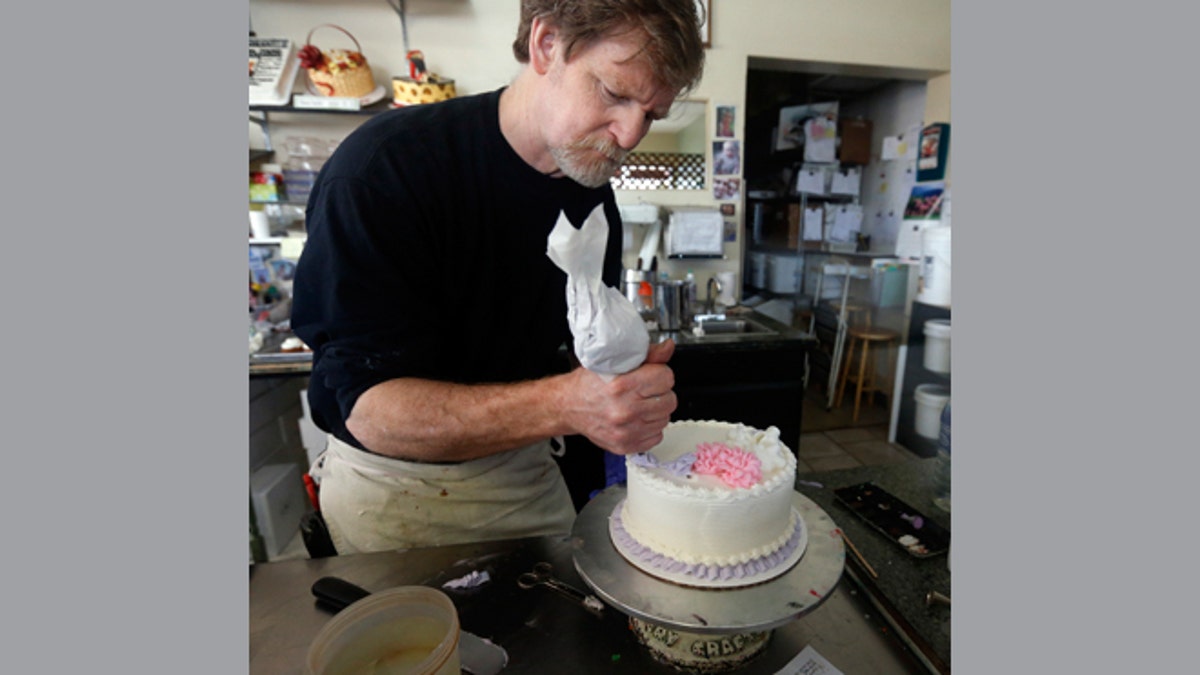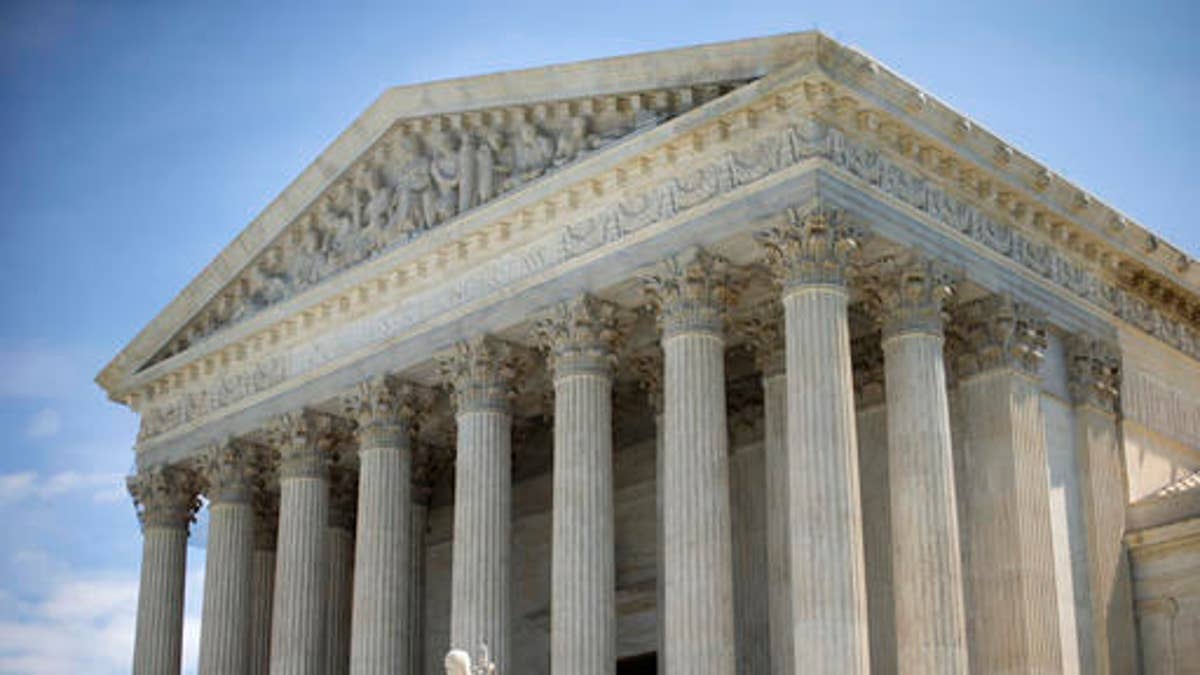
File: March 10, 2014: Masterpiece Cakeshop owner Jack Phillips decorates a cake inside his store, in Lakewood, Colo. (AP Photo/Brennan Linsley, file)
Two of the most precious rights Americans possess are the right to express themselves freely and the right to practice their religion as they see fit. Both are enshrined in the First Amendment.
But these rights are not absolute, and sometimes may clash with a duty toward others. Monday the Supreme Court decided to hear a case that may test these limits -- Masterpiece Cakeshop v. Colorado Civil Rights Commission.
It started in July 2012. Charlie Craig and David Mullins asked Jack Phillips, who owned the Masterpiece Cakeshop, to create a custom wedding cake to celebrate their same-sex marriage. Phillips refused, saying he didn’t want to promote a same-sex wedding due to his religious beliefs.
Craig and Mullins filed a complaint with the Colorado Civil Rights Commission. The Commission decided against Phillips, declaring he had discriminated on the basis of sexual orientation.
Considering how many times justices considered the Masterpiece Cakeshop case in conference over the past few months without officially deciding to take it up, many felt the Court was planning to duck it. But now that it’s on their schedule, the case will likely be a blockbuster.
The Commission ordered the cakeshop to change its policies, give its staff training on discrimination, and provide quarterly reports for two years regarding steps taken to comply with the order.
The Colorado Court of Appeals upheld the decision and the Colorado Supreme Court declined to hear the case.

FILE - In this June 30, 2014file , the Supreme Court building is seen in Washington. Conservatives who care about the court say they have no such worry this time around. They feel confident that whomever President Donald Trump nominates for the Supreme Court, they wonât be looking back with regret in the years to come. (AP Photo/Pablo Martinez Monsivais, File) (AP)
Last year, Phillips petitioned the Supreme Court to take the case, claiming the Colorado ruling violates the Free Speech and Free Exercise Clauses of the First Amendment. And now the Court has decided, after months of consideration, to hear the appeal this fall.
Dr. John Eastman, a professor and former dean at Chapman University’s school of law, believes the free speech argument is strong, because Phillips’ work involved “expressive conduct.” “Whether it’s a photographer, or a cake maker, or a T-shirt designer,” he notes, “they’re engaged in expressive activity” which is covered by the First Amendment. In fact, in the case of “T-shirts or language on a cake, it’s actual speech.”
But Erwin Chemerinsky, Dean of the University of California, Irvine School of Law, counters that the expressive activity comes from the customers. “If I choose the words on my cake, I’m engaging in expression. The baker is simply putting my words on a cake.”
Further, Chemerinsky notes that “even if this is about speech” that doesn’t mean the government can’t intercede. And in this case, “the interest in preventing discrimination outweighs” other interests. For instance, the baker would lose in court if he were “against interracial marriage and won’t bake a cake for an interracial couple.”
Eastman suggests we “shift the facts” and imagine a “white racist who wants an African-American baker to bake a cake celebrating the Ku Klux Klan.” If the courts tried to claim creating the cake “doesn’t implicate free speech rights, people would be howling.” Phillips was willing to serve homosexuals in his shop, he just didn’t want to be forced to support their beliefs.
As for the related free exercise of religion argument, Chemerinsky states that under the Supreme Court decision Employment Division v. Smith (1990), state law—such as Colorado’s anti-discrimination laws—may limit what people claim is their religious right as long as the statutes are “neutral laws of general applicability” and not aimed at religion.
Eastman agrees that the Smith ruling makes the free exercise argument a tougher sell, though he does wonder, with Justice Scalia—who authored the opinion, but is no longer on the Court – if it isn’t time to revisit this precedent.
Considering how many times justices considered the Masterpiece Cakeshop case in conference over the past few months without officially deciding to take it up, many felt the Court was planning to duck it. But now that it’s on their schedule, the case will likely be a blockbuster.
Eastman believes it could be bigger than the Hobby Lobby opinion a few years back, which allowed a company to be exempt from a contraceptive mandate due to religious objections. That case was limited in scope, but if the Court found for Phillips, it could mean there’s a constitutional right that would trump numerous statutes across the nation.
Steve Kurtz is an attorney. He is a producer for Fox News Channel.
